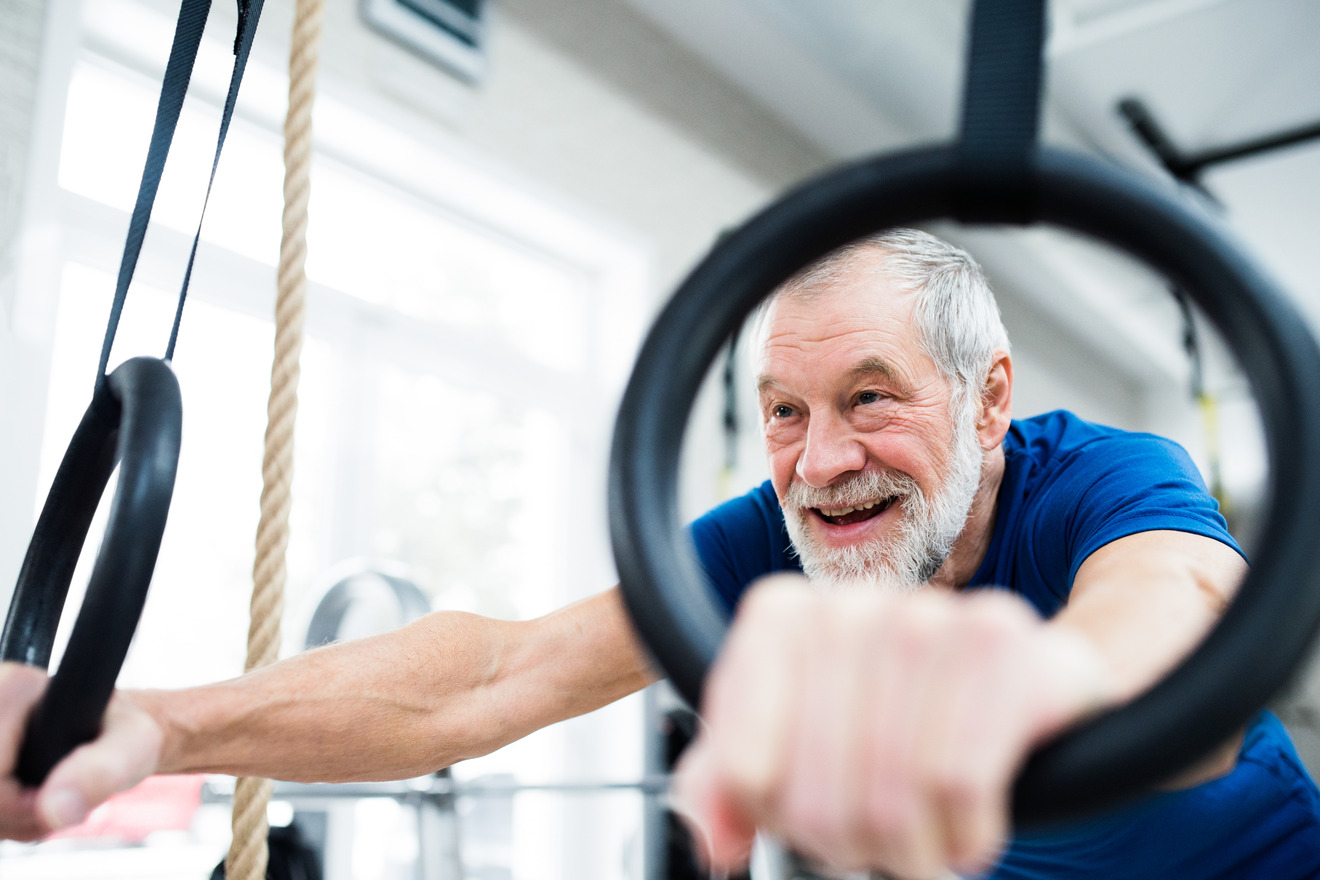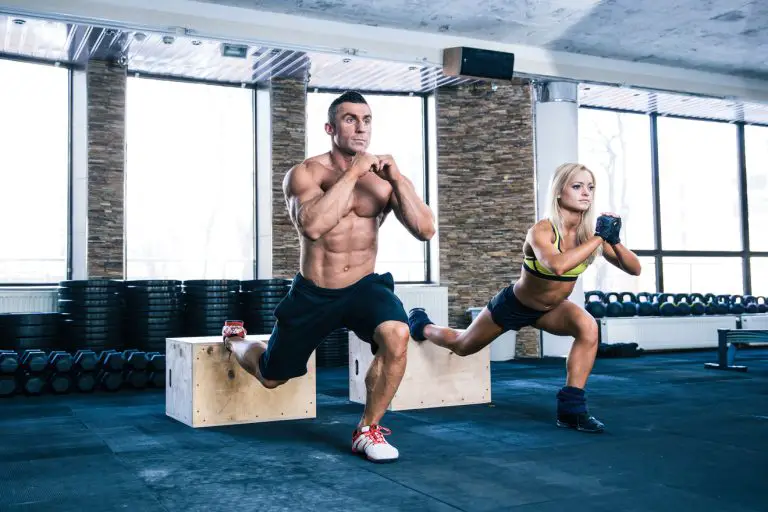Functional fitness for all ages
Key takeaways
- Functional fitness involves exercises that mimic everyday movements, engaging multiple muscle groups simultaneously. It emphasizes core strength, balance, flexibility, and joint stability, helping to improve daily functionality and reduce injury risk.
- For younger individuals, functional fitness enhances athletic performance, coordination, balance, and core strength for younger individuals. It also becomes vital for maintaining strength, flexibility, and mobility for those in the middle ages by preventing muscle mass decline, alleviating issues like back pain, and reducing risks for injury.
- Functional fitness is crucial for seniors to maintain independence and quality of life. It strengthens muscles, improves balance, and enhances flexibility, reducing the risk of falls and fractures. It also supports mental health by boosting cognitive function and mood.
- Functional fitness provides lifelong benefits for strength, mobility, and flexibility, improving overall daily task performance. It is never too early or too late to incorporate functional fitness into a routine for better physical health.
It’s never too late to start
Functional fitness has become a cornerstone of modern exercise, focusing on movements that mirror daily activities, enhance mobility, and build strength in practical ways. Unlike traditional fitness routines that emphasize isolated muscle groups or aesthetics, functional fitness prioritizes real-life performance and quality of life. Regardless of age, functional fitness offers benefits that can improve mobility, stability, strength, and overall well-being. This approach makes it an essential fitness strategy for young adults, middle-aged individuals, and seniors alike.
What is functional fitness?
Functional fitness focuses on exercises that engage multiple muscle groups simultaneously, mimicking movements used in everyday life. Examples include squats (mimicking sitting and standing), lunges (similar to walking or climbing stairs), and push-ups (pressing movements). It emphasizes core strength, balance, flexibility, and joint stability to enhance daily functionality and reduce the risk of injury.
Benefits for young adults
For younger individuals, functional fitness lays the foundation for lifelong health by improving athletic performance and preventing injuries. It enhances coordination, balance, and agility, which are crucial for sports and active lifestyles. Functional fitness also targets core strength, which stabilizes the body during complex movements. Developing these skills early can improve posture, reduce the risk of back pain, and support the ability to engage in various physical activities. Moreover, young adults often lead busy lives, and functional fitness offers efficient workouts that maximize results in shorter timeframes. By engaging multiple muscle groups simultaneously, it allows for full-body workouts that build strength, burn calories, and improve cardiovascular health in one session.
Functional fitness in middle age
As individuals enter their 30s, 40s, and 50s, functional fitness becomes even more critical to maintaining overall health and preventing the natural decline in muscle mass, strength, and flexibility. These years often come with increased responsibilities, such as careers and family, making the efficiency of functional workouts particularly valuable. Functional fitness helps counteract the effects of a sedentary lifestyle and can also alleviate common ailments like lower back pain and joint stiffness. By prioritizing movements that involve balance and coordination, functional fitness reduces the risk of injuries, which become more prevalent in middle age due to reduced flexibility and mobility.For individuals aiming to maintain or lose weight, functional fitness can be an effective tool. The dynamic nature of the exercises keeps the heart rate elevated, improving cardiovascular health while burning calories. Additionally, these movements often engage the core and improve metabolic efficiency.
Functional fitness for seniors
For older adults, functional fitness is essential in maintaining independence and improving the quality of life. Aging naturally leads to a decline in muscle mass, balance, and bone density, increasing the risk of falls and fractures even more. Functional fitness combats these issues by improving strength, balance, and flexibility.
Exercises like sit-to-stand movements, single-leg balance drills, and lightweight resistance exercises enhance stability and coordination, making everyday tasks such as getting out of a chair, walking, or reaching overhead safer and easier. Functional fitness also improves joint health, reducing the impact of age-related conditions such as arthritis. By incorporating gentle, low-impact movements, seniors can maintain mobility and reduce stiffness, enhancing their ability to perform daily tasks without discomfort. Moreover, functional fitness supports mental health in seniors. Engaging in regular exercise has been shown to improve cognitive function, reduce the risk of dementia, and enhance mood by releasing endorphins.
How to start functional fitness at any age
No matter your age, it’s easy to integrate functional fitness into your routine. For beginners, it’s essential to focus on proper form and technique to prevent injury. Simple bodyweight exercises like squats, lunges, and push-ups are excellent starting points.
Young adults may incorporate dynamic exercises such as kettlebell swings, burpees, or plyometric moves to build power and endurance. Middle-aged individuals can prioritize core strengthening, balance work, and flexibility exercises such as planks, yoga-inspired movements, and resistance band training. Seniors should focus on low-impact movements that enhance balance and stability, such as chair squats, standing leg lifts, and gentle stretches.
Working with a trainer or using online resources tailored to functional fitness can help ensure the exercises meet individual needs and are performed safely.
Social and psychological benefits
Functional fitness also offers social and psychological advantages. Group classes, whether in-person or virtual, foster a sense of community and motivation. Exercising with others can reduce feelings of isolation, particularly for seniors, and encourage long-term adherence to a fitness routine. Furthermore, functional fitness promotes mental resilience by emphasizing goal setting, gradual progression, and self-awareness. These psychological benefits enhance overall well-being, boosting confidence and reducing anxiety.
Invest in functional fitness
Functional fitness is an invaluable approach to exercise for individuals of all ages. It improves strength, mobility, balance, and flexibility, enhancing the ability to perform everyday tasks safely and efficiently. From young adults looking to build athletic performance to seniors aiming to maintain independence, functional fitness provides benefits that last a lifetime.
By incorporating simple, practical movements into your routine, you can experience the transformative effects of functional fitness, proving that it’s never too late—or too early—to start prioritizing your physical health.
Written with the assistance of AI. Reviewed and edited by Marielle Livelo.







